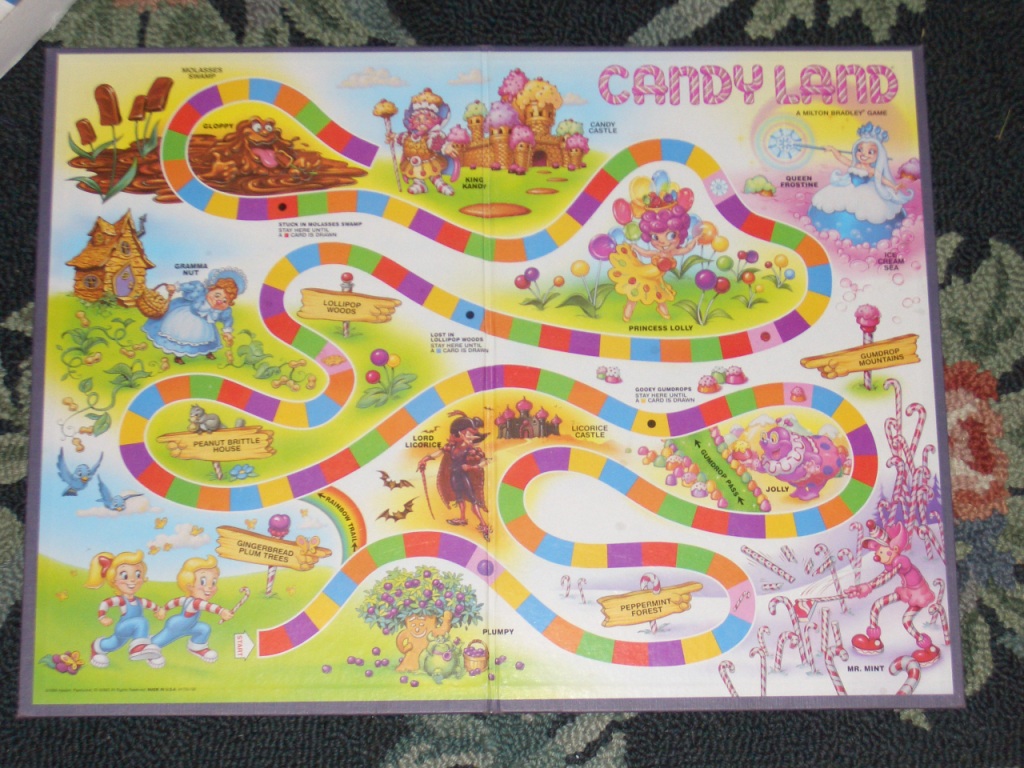 I want to start off by making a startling personal admission that you may find shocking. You may continue at your own risk but consider yourself properly warned. Here goes ….
I want to start off by making a startling personal admission that you may find shocking. You may continue at your own risk but consider yourself properly warned. Here goes ….
I hate Candyland.
Always have. Always will. The game drives me nuts. When my kids were little, I used to find any kind of excuse to not play it with them. But, because I did not want to hurt their feelings or make a big deal about it, I was sometimes trapped into participating in the game that never seems to end. It requires no skill, no memorization, no strategy. It has no point.
It is simply a mindless game of chance in which your only claim to victory is the random drawing of the right colored card. Mindless that is, unless you are the Dad who pre-stacks the cards so that your happily oblivious kid always seems to randomly draw the exact cards he needs, in the exact order he needs to draw them, in order to reach the pinnacle of Candyland achievement – the coveted "Candy Castle."
Whatever.
Yes, I cheated at Candyland. And yes, I know I shouldn't be cheating. But please -- I only practiced "positive" cheating. And yes, I know that playing Candyland requires no skill or strategy because it is a game for little kids. I get it. But any game that: discourages actual thinking so blatantly; is so unsystematic and muddled that rule violations go unnoticed; can be so easily manipulated by those in positions of power; and that offers such a vacuous and unsatisfying payoff -- any game like that is a colossal waste of my time. I boycotted it years ago.
I thought I had put my disdain for Candyland behind me, until I began reading Douglas Groothuis’s book, Truth Decay, a defense of Christianity "against the challenges of postmodernism." One of the postmodern philosophers Groothuis repeatedly quotes in the book is Richard Rorty, the former Stanford professor who died last month. Rorty's death has prompted a rash of articles about him, many of which I have read over the last few weeks. In short, these events converged in my realization that we have people – serious, educated, intellectually gifted people – who live their lives based on a worldview that effectively treats morality, ethics and the pursuit of truth no differently than a rainy afternoon game of Candyland.
Let me explain ...
 The Reverend Billy Graham recently made what I consider to be one of the most profound confessions I have ever heard. In James Emery White's book
The Reverend Billy Graham recently made what I consider to be one of the most profound confessions I have ever heard. In James Emery White's book 